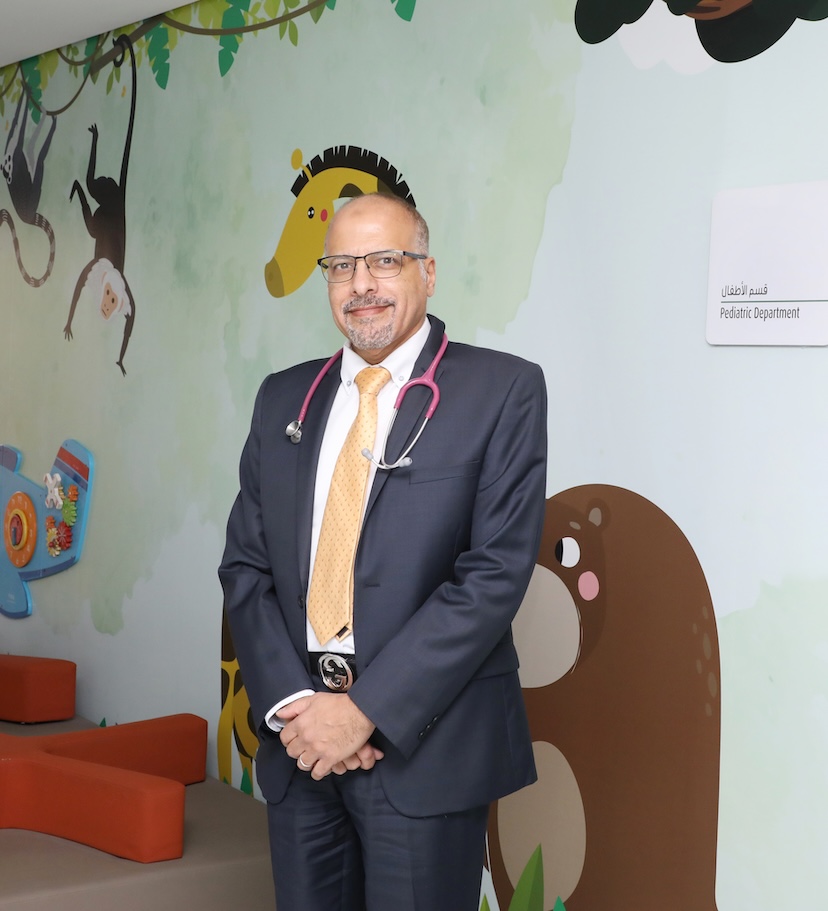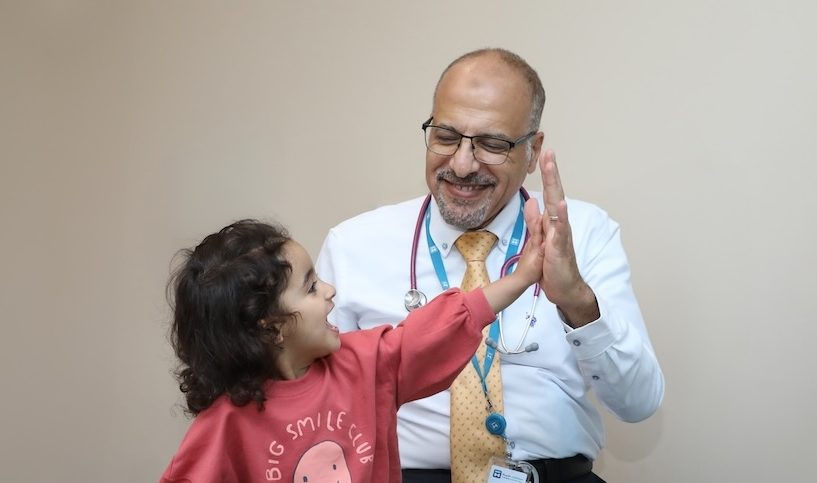In the complex world of pediatric medicine, few specialties require the delicate balance of technical expertise and compassionate care quite like pediatric cardiology. Dr. Ali Alhassan, a distinguished pediatric cardiologist at Taiba Hospital, shares his insights with bazaar on children’s heart health, offering hope and guidance to families navigating this challenging terrain.
The Heart of the Matter: Understanding Pediatric Heart Conditions
“The most common reason for referring a child to a pediatric cardiologist is the presence of an extra sound in the heart, what we call a heart murmur,” explains Dr. Alhassan, addressing a concern that often worries parents. He emphasizes an important point that many parents need to hear: “What parents need to know is that the presence of an extra sound in the heart does not mean that there is something wrong in their child’s heart. More than half of children with normal hearts will have an extra sound at some stage of their lives.”
Early Detection and Warning Signs
Understanding when and how heart conditions can be detected is crucial for parents. Dr. Alhassan notes that detection can begin even before birth: “A congenital heart defect can be detected when the child is still a fetus in the womb by a specific ultrasound of the heart called fetal echocardiography.”
For newborns and young children, he outlines several key symptoms parents should watch for: “Poor or slow feeding, fast breathing especially on feeding, excessive sweating on feeding, blue discoloration of the lips or tongue, failing to gain good weight.” For older children, the signs may include “getting short of breath during exercise or activities, getting tired very easily, fainting during exercise, and swelling in the hands, ankles or feet.”
The Genetic Connection
The role of genetics in pediatric heart disease is complex. “Congenital heart defects affect approximately one in every 100 newborns,” Dr. Alhassan reveals. “While for the majority of cases there is no known reason, genetics does play some part. There is an overall 3 times increased risk for congenital heart disease when a first-degree relative has a congenital heart disease.”

Modern Medicine’s Impact
Technology has revolutionized both diagnosis and treatment. “Major advances have occurred in treating heart defects by percutaneous cardiac intervention,” Dr. Alhassan shares enthusiastically. “This means less traumatic experiences for both the patient and their family, fewer days of hospital stays, and fewer complications in general.”
A Personal Touch in Treatment
Dr. Alhassan’s approach to treatment emphasizes family involvement. “It is very important that the parents have all the information about the nature of the disease, management plan, prognosis and options available for treatment,” he states. “Their full understanding of the medical problem and the different options available is crucial to achieve compliance with the management plan.”
Looking to the Future
When asked about lifestyle factors affecting children’s heart health, Dr. Alhassan emphasizes prevention: “Today’s children are the future’s adults. It is crucial that they have a healthy lifestyle regarding diet, exercise and avoiding toxins that will impact their health as children and adults.”
A Story of Hope
Perhaps nothing illustrates the impact of pediatric cardiology better than success stories. Dr. Alhassan shares a particularly moving one: “I always remember a 9-year-old girl, Fatima, who we treated in one of our humanitarian missions to a warzone country. She and her family stayed in touch with our team for many years after the surgery. She is now in her final year of medical school saying ‘I want to be a doctor to help others, just like the way you helped me.’”
Dispelling Common Myths
Dr. Alhassan is passionate about addressing misconceptions: “Another misconception is that any defect or hole in the heart is a major issue that needs surgery. In fact, a large proportion of these ‘holes’ in the heart does not need any intervention and mostly will close by itself.”
Preventive Measures and Parent Advice
For parents concerned about their children’s heart health, Dr. Alhassan offers practical advice: “Parents should start from an early age teaching their child how to eat a healthy diet and avoid or at least limit fast food intake. Also, they need to limit their children’s exposure to technology screens and encourage more outdoor activities and exercise to lead a healthy life.”
The field of pediatric cardiology continues to evolve, bringing new hope to families facing cardiac challenges. Through the dedicated work of specialists like Dr. Alhassan, children with heart conditions have increasingly positive outcomes and brighter futures ahead.
Taiba Hospital is located in Sabah Al Salem, off of route 30 on Road 3. Call them 24 hours at 180 80 88. For updates and information, visit the website taibahospital.com, and follow them on Instagram @taibahospital.











